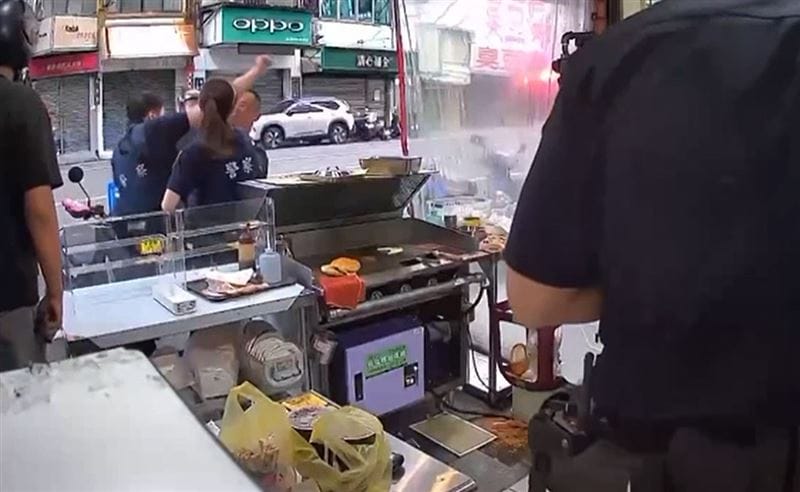Man Denied Toilet Access Smashes Shop, Returns to Threaten After Police Removal
The police response to a drunken man's violent attack in a Hsinchu breakfast shop has ignited widespread online criticism, raising grave concerns about law enforcement effectiveness.

When a Morning Routine Takes a Dark Turn
Imagine walking into your favorite breakfast shop, expecting the usual warm welcome and cozy atmosphere ☕🥐—only to witness a scene from a nightmare. That’s exactly what happened recently on Linsen Road in Hsinchu City. A drunken man asked to use the restroom but was denied. What followed was a tempest of destruction: smashing the shop and brutalizing the staff. The chaos escalated when, despite police intervention, the man returned an hour later, yelling and causing further distress. The owner’s wife was seen tearfully pleading for calm, perfectly encapsulating the fear and helplessness of those caught in the crossfire.

Police Reaction: A Questionable Approach?
The swift arrival of the police might seem reassuring initially. However, their response in this case raised significant concerns. Though charges were eventually filed—covering assault, property damage, and intimidation—the handling of the incident triggered a wave of discontent across social platforms. Netizens, outraged by what they viewed as inadequate protection and delayed action, stormed the police station’s Facebook page with fierce criticism. Google reviews plummeted to one-star ratings en masse, leading the authorities to disable the review function—a rare move that speaks volumes about public sentiment.
How did a situation involve such clear wrongdoing spiral into distrust and widespread anger toward law enforcement? This case exposes cracks in communication, procedural clarity, and perhaps even empathy on the part of officers tasked with public safety. It begs the question: Are police adequately trained and equipped to handle volatile and vulnerable scenarios like this? 🤔

The Fallout: Community Voices and Calls for Reform
In response to the backlash, the head of Hsinchu’s Third Precinct publicly acknowledged the mistakes and committed to improved officer training. Promises were made to treat future incidents with greater caution and sensitivity, aiming to prevent repeat misunderstandings. While this may be a step in the right direction, the community’s trust has clearly been shaken. Many citizens are left wondering whether these are just words or a precursor to meaningful change.
This incident is more than just an isolated event—it is a mirror reflecting broader concerns about police accountability and public safety in Taiwan's urban areas. It raises important questions about how law enforcement balances enforcement with empathy and how transparent and responsive institutions are to the voices they serve.
What Can Be Learned?
From this troubling episode, several key lessons emerge:
- Effective Communication is crucial to de-escalate tense situations before they blow up.
- The training and guidelines given to police officers should emphasize protecting victims and bystanders with empathy and respect.
- Swift, transparent action following incidents strengthens public trust and counters misinformation.
Above all, this alarming event reminds us of the human aspect behind headlines: real people, frightened and vulnerable, relying on institutions to provide safety, not further trauma. 🔍




